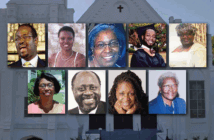Drawing on his experience in a cross-racial/cross-cultural ministry setting, Albert Shuler explains that successful multicultural ministry depends on clear goals and objectives. The ultimate goal of creating a healthy interaction between cultures rests on the initial goals of minimizing conflict, recognizing differences, and respecting differences.
The article has been translated into Spanish by United Methodist Communication.
Nearly everyone in ministry these days is aware of the complex tapestry of cultures that forms the backdrop of how we operate as church in the 21st century. A multicultural setting is not something new. It’s been the story of the American church for over 200 years.
But important questions are often overlooked: Just what do we really want? What are we trying to achieve? I believe it is important to focus on what is often the implicit goal of ministry in our churches and move onto a set of progressive goals that can help shape or direct us in our ministry and provide the beginning for truly living out the Gospel, which calls for our “oneness” in Christ.
The first goal: reducing conflict
It is important for people engaging in ministry in multicultural settings to reduce conflict. The conflict can be on two levels. It may be, and often is, between two or more groups who experience tension in their relationships with one another. The tension may show itself in resolutely avoiding one another, in competition for space and other resources, or in outright conflict.
Conflict between groups is real and very hard to reduce. Sometimes it needs to be addressed immediately with clear measures, especially if the conflict becomes violent, either verbally or physically. But such conflict cannot be treated merely as a problem to be solved. Ultimately relationships have to be formed, and building relationships takes time, patience, and a vision of where we hope to end up.
But there is another level of conflict — conflict within pastors themselves. Most feel uncomfortable and confused about what to do. They would rather the problems go away or hope some outside solution will present itself. Pastors, too, belong to various cultures. Many people are not totally aware of their cultures until they are confronted with cultural differences.
It is more difficult to analyze one’s own culture than the culture of someone else. But without understanding one’s own culture as one culture among many — however powerful and dominate that culture may or may not be — one has little chance of interacting successfully with people of other cultures. One needs to feel secure in one’s own cultural identity to deal effectively and healthily with other cultures. It helps people to realize that culture difference is not a simple deviation from their norm but a manifestation of a more complex interaction.
The second goal: recognition of others
How do we enter into that complex interaction? It begins with recognition of others. In most multicultural settings, the first reaction is to try to avoid or ignore differences. This takes two forms. It sometimes take the form of ignoring the presence of another group, thereby rendering them invisible. The other reaction is to cover over differences with such rhetoric as, “we are all brothers and sisters in Christ.” But this rhetoric frequently ignores the realities and the tensions that intellectual interaction often brings.
The only way to unity is through acknowledging the church’s catholicity — the many tribes and tongues, peoples and nations, that constitute the church. This is important because in cultural interaction, despite efforts to ignore cultural differences, it is the differences to which we are continually drawn. Differences in accents, clothing, social patterns are too salient to be ignored. Sometimes that difference leads to stereotyping and prejudice, to making generalizations about others. Sometimes it leads to outright hostility.
The third goal: respect for cultural differences
If recognition of the other is the beginning of the journey toward intercultural relationship, respect for cultural difference is a description of the journey underway. Tolerance may mean quietly putting up with difference, perhaps in the silent hope that it eventually will go away. Respect, however, means reaching the point where difference is valued in its own right, which adds to the richness of our relationships and to the richness of the world. Respect means coming to see the cultural difference of the other as having intrinsic value, not as deviation from some norm or a failure to reach a certain level.
The fourth goal: healthy interaction between cultures
The word healthy is important here, since much of the interaction between cultures is often very unhealthy. Interaction may be marked, on one hand, by stereotyping, prejudice, unwarranted suspicion, racism, and even overt verbal and physical violence. On the other hand, it may be characterized by a stifling romanticism that either glorifies cultural differences as an ideal held by one’s own culture or views the other culture as a childlike state that will eventually move up to one’s own culture.
Healthy interaction is based upon confidence about the value of one’s own culture and a sense of security that is not threatened by the encountering of difference. Healthy interaction means that two cultural groups interact so well that they can point to each other’s shortcomings. This is a very advanced state of healthy interaction.
What is required of us?
These four goals represent how intercultural relationships can develop from an initial acknowledgment of other groups, then to beginning a commitment to journey along together, and finally to achieving a sustained healthy interaction. Obstacles to intercultural communication, such as speaking different languages, will be encountered along the way. It may be necessary to provide training in communication and in building relationships. Most importantly, we will need bold biblical vision to challenge us to serve a rich and varied culture.
This material is adapted from a reflection by Albert Shuler contributed to Develop Intercultural Competence: How to Lead Cross-Racial and Cross-Cultural Churches (General Board of Higher Education and Ministry, 2018) by HiRho Y. Parks. Used by permission. The book is available at Cokesbury and Amazon.
Related Resources
- When a Pastor Serves a Church of a Different Racial or Cultural Background by Jasmine Smothers
- For Multicultural Churches — A Variation on the Golden Rule by Douglas J. Brouwer
- “Anxious to Talk About It: Helping White Christians Talk Faithfully About Race,” a Leading Ideas Talks podcast episode featuring Carolyn Helsel







